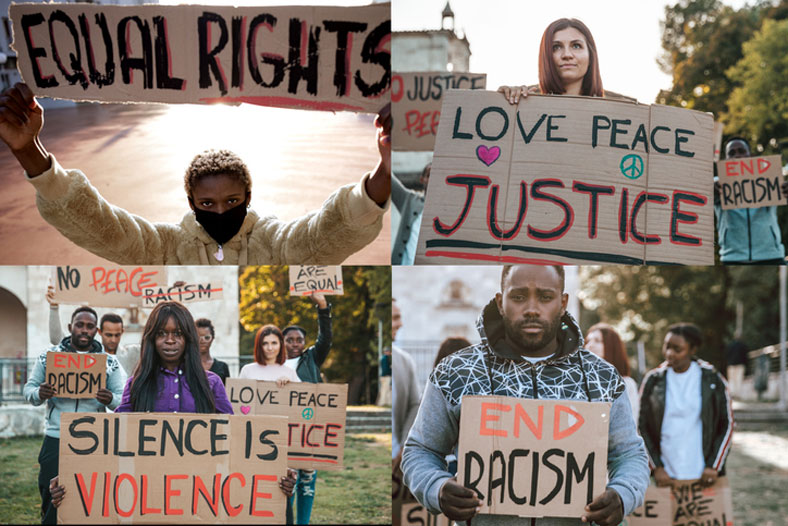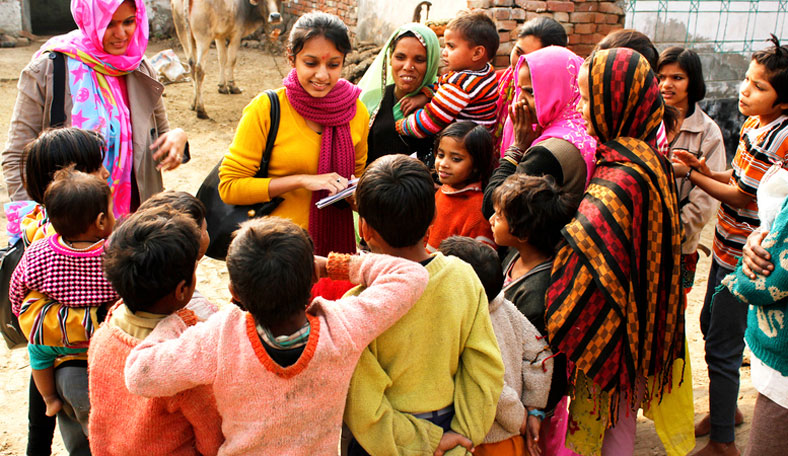Edited by Alyssa Middleton

Practicum education is a critical component in California MSW programs. According to the national accrediting body of social work programs, the Council on Social Work Education (CSWE), field education is the signature pedagogy for social work.
This means that field education — nowadays referred to as practicum or practicum placement,— is instrumental in preparing students for professional practice, instilling in them the ability, as noted in the 2022 Educational Policy and Accreditation Standards (EPAS) “to think, to perform, and to act intentionally, ethically, and with integrity.”
What Is Practicum Education in Master of Social Work Programs?
Practicum is the part of the MSW explicit pedagogy — the program design, courses offered, and practicum curriculum — that is guided by the professional practice community in collaboration with classroom instructors.
Master’s programs often require written contracts or affiliation agreements with field agencies to ensure that practicum instructors and community social organizations meet the CSWE accreditation criteria.
MSW Practicum Accreditation Standards
The CSWE sets forth its practicum education expectations for social work master’s programs in its Educational Policy and Accreditation Standards, which covers the purpose of this hands-on education component. According to the EPAS, this is as important as classroom coursework because it gives students the opportunity to apply social work research and theory in a real-world professional context.
Master’s students will “apply human rights principles from global and national social work ethical codes to advance social, racial, economic, and environmental justice” to demonstrate their mastery of the nine social work competencies of generalist practice as well as their specialized practice area.
EPAS Practicum Accreditation Standards: Competencies
MSW students will demonstrate the nine social work competencies at least one relevant system level in practicum settings for each area of specialized practice.
System levels include:
- Individuals
- Families
- Groups
- Organizations
- Communities
EPAS Practicum Accreditation Standards: Hours
Master’s students must complete a minimum of 900 hours of practicum education with an approved social agency. The number of hours vary by program. For example, UCLA’s Luskin School of Public Affairs requires two distinct placements during its two-year program, totaling roughly 1,100 hours in a field placement.
For USC’s MSW program, students must complete between 1,000 to 1,150 internship hours at an approved agency, with a minimum of 450 hours completed during year one and at least 550 hours earned in year two.
San Francisco State University has a requirement of 1,200 hours of internship for its MSW program. Students must complete 480 hours in the first year and 720 hours in the second year.
EPAS Practicum Accreditation Standards: Assessment
To determine a student’s professionalism and mastery of generalist and specialist — including anti-racism, diversity, equity, and inclusion (ADEI) — faculty or practicum supervisors use assessment tools based in “real or simulated demonstration of student achievement in practicum education.”

The instruments, the expected level of achievement for each instrument, and the expected level of achievement for each competency are determined by the program. Student competence must be assessed by program faculty or supervising practicum personnel.
EPAS Practicum Accreditation Standards: Qualified Instructors and Agencies
Practicum instructors and supervisors for MSW students must hold a master’s degree in social work from a CSWE-accredited program and at least two years of professional practice experience, not including their master’s program-related practicum experience.
Agencies may be government entities, nonprofit organizations, or public service agencies that are committed to serving vulnerable populations. California is home to hundreds of social agencies with social work professionals who are qualified to and interested in mentoring future social workers. California universities are continually recruiting practicum instructors and agency partners to enhance student learning. Most MSW programs have practicum supervisor training and criteria for agency partners.
At minimum, Master of Social Work programs require the agency to:
- Employ an individual who holds a master’s degree in social work from a CSWE-accredited program and has at least two years of post-master’s social work degree practice experience in social work and whom has been affiliated with the agency for at least one year.
- Provide the practicum instructor with adequate time to provide orientation, clinical instruction, and administrative supervision to MSW students
- Provide appropriate learning opportunities to students that allow them to achieve the program’s learning outcomes
- Collaborate with faculty to teach and evaluate MSW students
Macro, Micro, Mezzo Practice
Agencies in which MSW students may be placed have similar goals, but it is helpful to know the difference between macro, mezzo, and micro social work when beginning your internship.
- Macro social work: The focus is on policy reform, research, and advocacy at the local, state, national, and international level.
- Mezzo social work: Community improvement through local initiatives drive the mission of mezzo social workers.
- Micro social work: Micro social workers implement interventions for individuals and families, providing emotional and social support to small groups.

Examples of MSW Approved Agencies for Placement in California
- Actors Fund – Los Angeles, CA
- AIDS Service Center – Pasadena, CA
- Alzheimer’s Assn., Los Angeles – Los Angeles, CA
- Asian Pacific AIDS Intervention Team – Los Angeles, CA
- Asian Pacific Counseling & Treatment Centers – Los Angeles, CA
- Beach Cities Health District, Redondo Beach, CA
- Boys and Girls Club Malibu Teen Center – Malibu, CA
- Cancer Support Community, Topanga, CA
- Centinela Youth Services, Everychild – Inglewood, CA
- Child & Family Guidance Center, Northridge – Northridge, CA
- Children’s Institute International – Los Angeles, CA
- City of Irvine, Lakeview Senior Center – Irvine, CA
- City of Long Beach, Development Services – Long Beach, CA
- Coalition to Abolish Slavery & Trafficking (CAST) – Los Angeles, CA
- Community Coalition – Culver City, CA
- County of Ventura, Human Services – Ventura, CA
- Covenant House – Los Angeles, CA
- Domestic Abuse Center – Northridge, CA
- East Whittier City School District – East Whittier, CA
- El Nido Family Centers, Carson – Carson, CA
- Exodus Recovery, Inc. – Culver City, CA
- Family Services of Santa Monica – Santa Monica, CA
- Foothill Family Services – Pasadena, CA
- Greater Long Beach Child Guidance Center – Long Beach, CA
- Hathaway-Sycamores, Outpatient – Pacoima, CA
- Helpline Youth Counseling – Norwalk, CA
- Hillsides – Youth Moving On – Pasadena, CA
- Hoag Memorial Hospital – Newport Beach, CA
- Holarchy Consulting Services – Hollywood, CA
- Institute for Applied Behavior Analysis – Los Angeles, CA
- Jewish Family Service of Los Angeles – various sites, CA
- Kaiser Permanente, various sites, CA
- LA County Department of Children and Family Services, various sites, CA
- LA County Department of Health Services, various sites, CA
- LA County Department of Mental Health, various sites, CA
- LAUSD, School Mental Health, various sites, CA
- Lennox Educational Neighborhood Zone (LENZ – Lennox, CA
- Los Angeles Centers for Alcohol & Drug Abuse – Los Angeles, CA
- Maryvale Family Resource Center – Duarte, CA
- Mental Health America – The Village – Long Beach, CA
- New Visions Foundation – Santa Monica, CA
- Occupational Therapy Training Program – Torrance, CA
- ONEgeneration Daycare – Van Nuys, CA
- OPCC – Santa Monica, CA
- Partners in Care Foundation – San Fernando, CA
- Project IMPACT – Lynwood, CA
- Prototypes Center for Innovation – Culver City, CA
- Prototypes I-CAN – Pasadena, CA
- Providence Trinity Care Hospice – Redondo Beach, CA
- Redondo Beach Unified School District – Redondo Beach, CA
- Saint John’s Child & Family Development Center – Santa Monica, CA
- Seasons Hospice & Palliative Care – Orange, CA
- Social Model Recovery Systems – various sites, CA
- South Asian Network (SAN) – Artesia, CA
- South Bay Center for Community Development – El Segundo, CA
- Southern CA Foster Family & Adoption Agency – Los Angeles, CA
- Joseph Center – Venice, CA
- Step Up On 2nd – Santa Monica, CA
- Teen Line – Los Angeles, CA
- The Guidance Center – Long Beach, CA
- The Help Group – Sherman Oaks, CA
- UCI Medical Center, CHAO Family Cancer Ctr. – Orange, CA
- UCLA Counseling and Psychological Services – CAMPUS 155606
- United Way of Greater L.A. – Los Angeles, CA
- VA Greater LA Healthcare, Sepulveda – Sepulveda, CA
- VA Greater LA Healthcare, West Los Angeles – Los Angeles, CA
- Venice Community Housing Corp – Venice, CA
- Ventura County Behavioral Health Department – Oxnard, CA
- Ventura County Human Services Agency – Ventura, CA
- Veterans First – Santa Ana, CA
- Watts Labor Community & Action Committee – Watts, CA
- West End Family Counseling Services – Ontario, CA
- WISE and Healthy Aging – Santa Monica, CA
Whether you’re placed in a substance use disorder treatment center, a school district, a local government agency, or a senior center, your MSW program has designed its practicum to adhere to the nine social work competencies and your area of specialization.
A quality practicum led by an experienced supervisor will prepare you for a career as a social work practitioner in California and across the globe.





